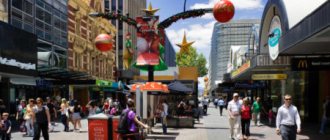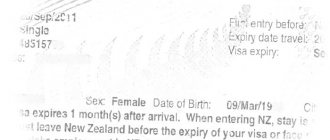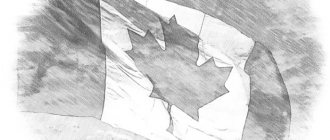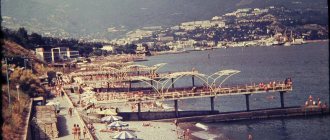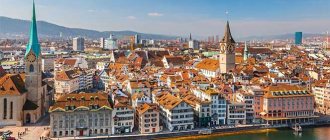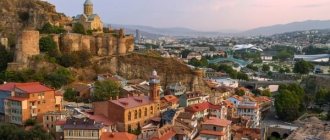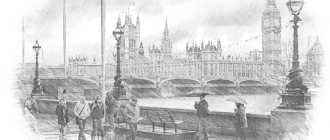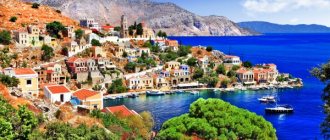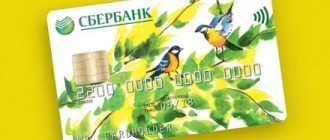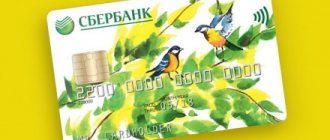Economic situation of the country
Foreigners planning to emigrate to Serbia need to take into account the peculiarities of the country’s current economic situation:
- type of economy – transitional, with a dominant role of the market sector;
- Serbia's economy is highly dependent on the influx of foreign capital;
- The main weaknesses of the economy are the small reserves of hard currency and the significant outflow of qualified personnel, as well as corruption.
The Serbian economy receives its main profit from agriculture, as well as from industry and the service sector.
Standard of living and wages
Before entering the country, you need to familiarize yourself with the main advantages and disadvantages of life in Serbia through the eyes of Russian citizens (in the context of the economic and social components):
| Criterion for assessing standard of living | A comment |
| High level of transport provision for the population | The main advantage of Belgrade's transport infrastructure is its developed air service. Water transport, as a rule, travels along the Danube and Sava rivers. There are good railway connections with other countries - Croatia, Bosnia and Herzegovina, Hungary, Bulgaria, etc. |
| Availability of a compulsory health insurance system | Russians in Serbia can receive emergency medical care for free. Routine consultations with a doctor for foreigners cost approximately 3 to 10 dollars. Each community (administrative-territorial unit) has a public clinic, as well as private practitioners |
The key disadvantage of the economic component is small pensions and benefits for pensioners.
Prices for goods, fuel, real estate
Russian citizens intending to live in Serbia should familiarize themselves with the average prices for basic food products from this list:
| Name of product | Price in Belgrade, converted to Russian rubles |
| Bottle of water 1.5 liters | 25,78 |
| Milk | 28 |
| White bread | 24,95 |
| Eggs | 80 |
| Cheese 1 kilogram, fat content – 50% | 303 |
| Apples 1 kilogram | 53,64 |
| Potatoes 1 kilogram | 37 |
When immigrating to Serbia, you must also take into account current fuel prices:
| Type of fuel | Prices, in national currency (RSD) |
| 95 | 143,20 |
| 98 | 153,40 |
| DT | 159,90 |
| Gas | 74,90 |
A Russian citizen who decides to move to Serbia will most likely not experience problems with renting housing. On average, the cost of renting a two-room apartment in small towns ranges from 100 to 1,500 euros per month.
Regarding the purchase of real estate, the average cost of 1 square meter ranges from 600 to 7,000 euros.
Cost of living in Serbia
Serbia is a state where you can start life from scratch. This is not a place where you get large-scale career growth and luxury, but having a comfortable life surrounded by beautiful nature away from the bustle of Europe is quite possible.
The cost of living in Serbia in 2021 for a foreigner will be higher than for local residents. You will need to spend money on medical insurance, filing an application for the right to stay in the country, and a fee for long-term stay. There are no discounts for pensioners, disabled people or children.
The cost of services and products is lower than in the Russian capital. Gasoline and alcohol are not cheap, but cigarettes are inexpensive. By the way, in Serbia they drink little alcohol, but they actually smoke a lot, and everywhere: at bus stops, in cafes and in parks. Prices in Belgrade in 2021 are the highest in the country, as is the salary level.
Now regarding the cost of food. Let's compare some goods in the Russian and Serbian capital (translated into Russian rubles).
| Product | Cost in Moscow | Cost in Serbia |
| 1.5 liters of still water | 32 | 26 |
| Bread | 30 | 25 |
| Chicken eggs (10 pieces) | 65 | 75 |
| Chicken breast | 180 | 280 |
| Potato | 28 | 37 |
| Apples | 70 | 52 |
| 1 liter of beer | 70 | 34 |
| Carrot | 38 | 24 |
| Instant coffee (200 g) | 230 | 94 |
| Flour (1 kg) | 32 | 21 |
As you can see, prices for food in Serbia in 2021 are lower than in Moscow. Not all, but most. At the same time, the average income of the population is higher than in Russia.
In general, life in Belgrade will be cheaper than in Moscow. Some more numbers:
- for a dress from a brand manufacturer you will have to pay 2200 rubles;
- monthly gym membership – 1,700 rubles;
- a one-way ticket by bus will cost 44 rubles;
Prices in Belgrade for food in a restaurant:
- lunch at McDonald's for one – 290 rubles;
- lunch in a cafe – 350 rubles;
- dinner in a restaurant for two (salad, main course, dessert and a bottle of wine) – 1600 rubles.
Unemployment rate in the country
Unemployment rate according to official statistics:
| Year | Number of unemployed as a percentage of the total working-age population |
| 2017 | 14,1 |
| 2016 | 15,9 |
| 2015 | 18,2 |
| 2014 | 19,9 |
| 2013 | 23,0 |
| 2012 | 24,6 |
| 2011 | 23,6 |
| 2010 | 20,0 |
As can be seen from the table, the number of citizens provided with work in Serbia is systematically increasing from year to year.
Climatic conditions and ecology
When immigrating, an individual must take into account local climate characteristics:
- continental - in the northern regions of the country;
- temperate continental - in the southern parts;
- mountainous - in mountainous areas.
Other climate features:
- the coldest month is January;
- the warmest month is July;
- the average annual temperature is 10.9 degrees Celsius.
Nuances of the Serbian environmental situation:
- the NATO war against Yugoslavia caused significant damage to the environment - the soil and atmosphere are still contaminated with emissions of toxic elements;
- There are problems in the field of waste processing.
In particular, only 15% of garbage is recycled, the remaining 85% is simply destroyed.
Fruška Gora National Park
Local culture, customs and traditions
The main features of the mentality of Serbian citizens:
- veneration of ancestors, their traditions and customs;
- habit of drinking coffee in the morning, afternoon, and evening;
- The most popular sport among the local population is football.
Also, one of the cultural features is the consumption of dishes rich in meat and vegetables.
Education in Serbia
A Russian must also take into account the peculiarities of Serbian modern education:
- Children are admitted to primary schools from the age of 7;
- basic compulsory education lasts 8 years, then there is a choice: continue studying for another 4 years, or go to a specialized educational institution for 2-4 years, or to a vocational technical school for 2-3 years, after which it is possible to enter a university.
Serbs can study at one of the 6 largest institutes in the country - Belgrade, Nis, Pristina, etc.
Belgrade University
Work for migrants: available vacancies for citizens arriving from abroad
A foreigner can work in Belgrade or in other localities of the Republika Srpska and still receive the minimum salary - approximately 250 to 350 euros per month, but if you are lucky, much more.
Categories of work for migrants:
- seasonal;
- remote;
- invitation to the company.
The best option is to get a job at the invitation of a Serbian company. In this case, the migrant will be guaranteed:
- social package;
- salary from 1000 to 4000 euros;
- health insurance;
- payment for telephone services;
- service apartment and car (in some cases).
However, the chances of getting a job by invitation are minimal. To do this, you need not only to be fluent in the Serbian language, but also to have the appropriate professional qualifications and experience.
Standard of living
The average salary in Serbia is the lowest of all the Balkan states. The northern regions are considered more prosperous, where the salary is about 450 euros, the south and west are poorer and earn only 330 euros per month. If you look at private cars, most Serbs have small used foreign cars with a manual transmission. It is obvious that the Serbs cannot afford to show off.
In the capital Belgrade, the roads are good, but as soon as you move away from large cities, the situation changes for the worse. The country is agricultural, many people are engaged in farming. However, social benefits are higher than in Russia and Ukraine: for example, pensioners receive an average of 220 euros per month. Through the eyes of Russians, the situation looks like an alternative to impoverished old age in their homeland. Education and medicine are cheap. However, if the policy towards European integration continues, the authorities will most likely have to cut payments to the population.
Migration policy and the attitude of local residents towards migrants
The main difference between the migration policy of Serbia and other countries is the provision of several opportunities for obtaining a residence permit, permanent residence and citizenship. In particular, you can become a permanent resident of the Balkans when purchasing a home or after receiving an education diploma.
As for the attitude of Serbs towards migrants, it is most positive towards Russians (especially on the part of Serbian peasant workers). According to public opinion polls conducted in 2010, Serbs had better attitudes towards Russians than towards the French, Germans and Italians.
However, in Serbia there are some media outlets that clearly promote anti-Russian sentiments, for example:
- TV and radio company B92;
- newspapers Danas, Vreme, Blic.
Regarding relations between Serbia and Russia, already at the interstate level, we can say that they are partnerships. For example, the total trade turnover of both countries as of 2014 was 2123 million US dollars. Over the past 5 years, there has been a tendency for the volume of Serbian supplies to grow. The increase in mutual imports/exports is also facilitated by the free trade agreement concluded in 2000, which exempts more than 90% of goods from customs duties.
Minimum salary in Serbia
According to the decision of the Government of the Republic of Serbia, for the period from January to December 2021, the minimum wage in the country, excluding taxes and compulsory social security contributions, is 183.93 (net) Serbian dinars per working hour , which is equivalent to 1.9 US dollars. Last year the rate was 172.54 dinars.
Depending on the number of working hours per month, the official minimum salary in Serbia in 2021 ranges from 33,263.91 (160 hours) to 38,580.89 (184 hours) dinars per month.
MINIMUM SALARY IN SERBIA
| Hours per month | Dinars per month (net) | Dollars per month (net) |
| 160 | 33 263,91 | 340 |
| 168 | 35 036,24 | 355 |
| 176 | 36 808,56 | 375 |
| 184 | 38 580,89 | 390 |
Advantages of living in Serbia for Russians
Foreigners who move to Serbia usually note the following advantages of living in the country:
| Advantage | A comment |
| Residence permit | It is quickly processed: to do this, immediately upon arrival you can contact the local police station. At the same time, you do not need to pass an exam for a residence permit for knowledge of the Serbian language |
| Food, clothing, cosmetics, travel services | Cheap |
| Serbian language | It is very similar to Russian - even a child can master it in a short time. Some words even sound the same, and the logic of constructing phrases is similar |
| healthy lifestyle | Following the canons of a healthy lifestyle is very popular among Serbs. Almost every third resident of this country is involved in some kind of sport at an amateur or professional level. |
| Serbian cuisine | Familiar for many Russian citizens, and most importantly – accessible. You can have a hearty lunch in one of the Serbian restaurants without putting a big strain on your wallet - for only 4 euros |
| Resorts | Beautiful scenery and affordable prices for immigrants. In addition, in Serbia there are several dozen balneological resorts where you can undergo treatment of the musculoskeletal system |
| Climate | Excellent climate with mild winters (average temperature - from 6 to 12 degrees above zero) and warm spring and autumn (average temperature - from 15 to 25 degrees above zero) |
It is these advantages that attract citizens from other countries to Serbia.
Disadvantages of living in Serbia – what you need to know
1) Slowness - lako
Once you decide to move to Serbia, get ready to slow down: the world - the word, the idea, the philosophy and the lifestyle. It can be translated into Russian as “slowly, slowly, relaxed.”
Polako is the opposite, dark side of the Balkans’ ability to relax and enjoy life. Polaco seeps into all areas; It entangles people with languid, gentle tentacles, forcing them to promise the impossible, ignore obligations and be catastrophically late.
.
Here I will repeat the mantra again: sorry, of course not, but this happens quite often.
The fattest polka octopus
stuck to the niche of construction and repair services. When calling a specialist (or a whole team of Polak craftsmen) to your home, know: from the “fast-cheap-high-quality” trio, you may have to forget about the first point right away.
Let's say you need to build a fence/fix a toilet tank/plaster a wall. The first time the master will arrive quite quickly
. He will look around the battlefield, cluck his tongue sadly and say that he has never seen such devastation before.
Then the master will properly praise himself and assure that you hit the jackpot by choosing him, an unsurpassed pro. And that the day after tomorrow he will arrive with his eagles. And the fence will sprout, the wall will shine, and the toilet tank will sing like Pavarotti
.
On the appointed day, you will forget about everything and dance in impatience near the tank. The eagles won't come. In response to the indignation, the foreman jabbers on the phone that the team must urgently repair the cable road to the constellation Andromeda
, and tomorrow he will definitely take care of your tank.
But tomorrow the team is changing the illumination of the Eiffel Tower, the day after tomorrow they are cleaning the bottom of the Mariana Trench... You get desperate and are already raising your finger to dial another master, when suddenly the bell rings and a dozen comrades with cigarettes in their teeth materialize in front of you.
The crew lays out the tools and hints that it would be nice to grab some coffee first
- morning, after all. Everyone drank coffee for a long time and tastefully and finally got to work.
And then it turns out that it is impossible to repair the tank without exchanging vital information: what is someone’s salary, how many children does someone have, what does someone think about Serbia, what should the presidents of our countries do. Fifteen minutes of small talk per hammer blow
.
By evening you discover that the wall has not been plastered, instead of a fence there are only holes in the beds, and the toilet has been completely dismantled. And the master vows to finish everything... that's right, tomorrow!
If you lose your temper and start rushing the brigade, the eagles will look at you in surprise and say:
- Polako, brother Rus. You don't know how to live.
2) Unemployment
After all the political, economic and other vicissitudes of the nineties and early two thousand, the unemployment rate
in Serbia is still high. Don’t expect that you will arrive and instantly, with half a kick, get a job somewhere.
In addition, access to the labor market for foreigners is complicated
: the company has no right to hire a foreigner until it proves that no Serbian is suitable for this position. That is, the company imposes certain requirements on applicants and is obliged to wait 10 days. If during this time a Serbian citizen with such skills does not appear, a foreigner receives the position.
So it’s easier to move to Serbia for those who
:
- wants to open his own business
, at the same time, is ready to look for an unoccupied niche, adapt to the market, deal with the laws, try, make mistakes and try again;
- already established as a specialist
, has a higher education, work experience and deep knowledge in a sought-after field (or vice versa, a unique selection of knowledge in different fields);
— energetic, enterprising, sociable, easily makes new acquaintances
.
Well, life in Serbia will be even easier for a foreigner who has some kind of passive income
(for example, from renting out an apartment to a breadwinner), a thick financial cushion with interest, a pension on a card, remote work - in general, a financial spring abroad.
3) Expensive gasoline, utilities, medicine and communications
Before you fill up your car's tank, go to the pharmacy for heart drops. Fuel prices
in Serbia is twice as high as in Russia. But it’s a reason to walk more.
And also toughen up: utility bills
- a serious expense item. Central heating alone sometimes costs 70-100 euros per month, and you have to pay it even in the summer. You can save money by staying in an apartment without a central heating system; fortunately, the winters here are mild. In this case, electricity bills will increase, but only in the cold season.
Technology
It’s better not to stock up in Serbia: the choice is small, and the prices are steep.
The Internet and mobile communications
also bite .
Finally, medicine
, with the exception of dentistry and cosmetology. If you don’t get a visa and a medical card that allows you to wait in line to go to public clinics, you will have to visit private clinics. And they will gladly tear off seven financial skins from you. MRI for 100 euros? Nothing unusual! 200 euros per day in a hospital room? Fine! And the green stuff here costs 7 euros per bottle.
